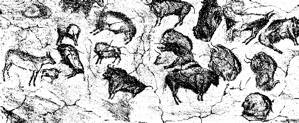Altamira Cave
Online Biology Dictionary
|
|
EUGENE M. MCCARTHY, PHD
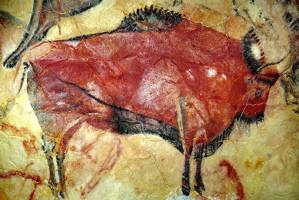 How the paintings are arranged (Sautuola 1880).
How the paintings are arranged (Sautuola 1880).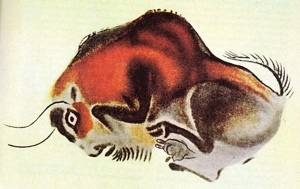 Bison, Altamira — Modern reproduction on paper
Bison, Altamira — Modern reproduction on paper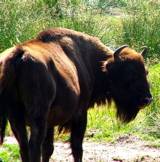 A Wisent (European bison). Photo: Jairo S. Feris Delgado
A Wisent (European bison). Photo: Jairo S. Feris Delgado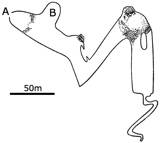 Map of the cave — A: Entrance;
B: Painted gallery. The cave is about 300 meters (~1000 ft) long. The main passage is between two to six meters (6.5-13 ft) high.
Map of the cave — A: Entrance;
B: Painted gallery. The cave is about 300 meters (~1000 ft) long. The main passage is between two to six meters (6.5-13 ft) high.
The Cave of Altamira in Spain is famous for its Upper Paleolithic cave paintings featuring drawings and colorful paintings of game animals and human hands. It was the first cave where prehistoric cave paintings were discovered.
The Altamira paintings, now recognized as some of the oldest and finest paleolithic paintings in Europe, were discovered by the now famous Spanish spelunker Marcelino Sanz de Sautuola (1831–1888). At the time, cave paintings were as yet unknown to archaeological science.
During the 1870s de Sautuola had begun spending his spare time probing the caves of his native Cantabria, a region in the extreme north of Spain, on the Bay of Biscay.
It was in the summer of 1879, in Altamira cave, after many such excursions, that his little daughter Maria suddenly cried out — "Mira papá! Bueyes pintados!" (Look, papa! Painted bulls!).
De Sautuola followed his daughter's eyes to the ceiling — "No son bueyes," he whispered, gazing upward. "Son bisontes!" (They aren't bulls. They're bison!). He saw at once that this was prehistoric art — No bison had lived in Spain in historic times.
The wisent, or European bison (see figure right), is an animal to all appearances identical to the American bison, or buffalo. The two are treated, however, as separate species (their scientific names are, respectively, Bison bonasus and Bison bison). Once widespread and abundant in Eurasia, the wisent has long teetered on the verge of extinction. A small herd survives in Bialowieski National Park in Poland.
When de Sautuola published, at his own expense, a book of illustrations presenting the paintings and drawings he had found in the cave, many people thought it was all a hoax. They could not believe prehistoric humans would be able to produce art of any kind (especially given the fact that many modern humans can't draw!). In fact de Sautuola died without ever seeing his claims accepted.
Of course, the fact that cave art is genuine is well accepted today.
Scientists are still evaluating the age of the art in Altamira Cave. Recent uranium-thorium dating studies suggest that the paintings were created piecemeal over a period of some 20,000 years, with the oldest dating to about 35,000 years B.P.
Because the paintings were deteriorating, Altamira was closed to the public in 1977. A very few visitors are still admitted, but the waiting time is long. Much easier of access is the replica of the cave which has now been built. Go see it next time you're in northwestern Spain.
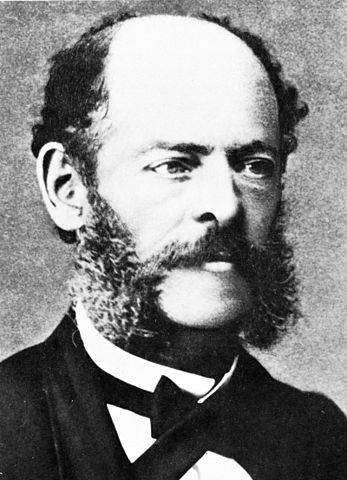 Sanz de Sautuola
Sanz de Sautuola